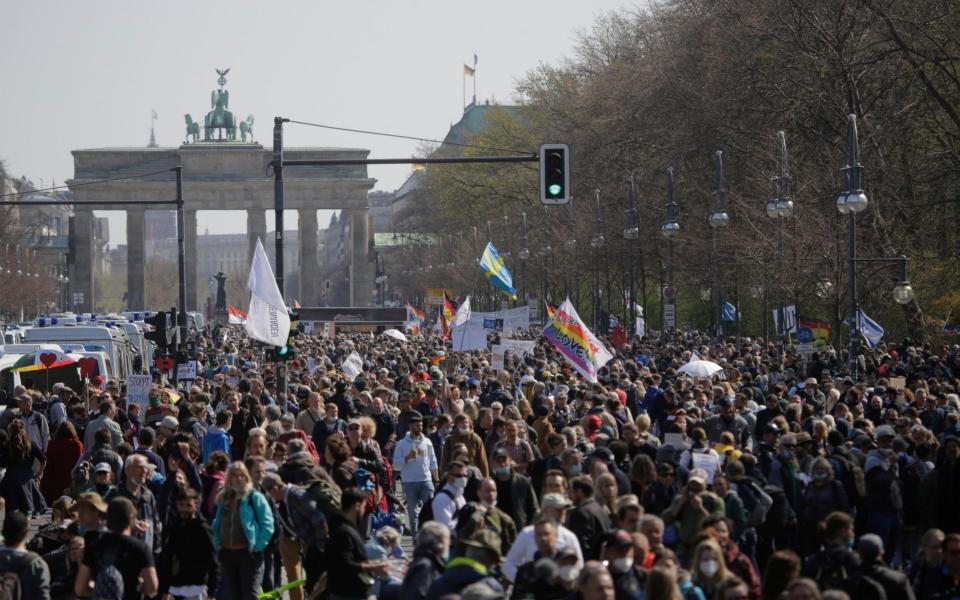Clashes outside German parliament as government approves new Covid powers for Merkel

- Oops!Something went wrong.Please try again later.
Police in Berlin made over one hundred arrests on Wednesday as thousands of people demonstrated a new law imposing night-time curfews on Covid hotspots.
Violent clashes broke out after police ended a demonstration with some 8,000 participants in central Berlin due to participants not abiding by social distancing regulations.
Video from the scene shows angry protesters trying to break through a police barricade before being pushed back by riot police using pepper spray. Nearby, police rushed into crowds who had gathered in an adjacent park and pulled people out.
Berlin police confirmed that 152 people had been arrested by the late afternoon.

The lockdown sceptics had gathered to protest a law which was passed by the Bundestag later on Wednesday giving the federal government powers to impose stringent lockdown measures on Covid hotspots.
Chancellor Angela Merkel argued that the national law was necessary after state governments failed to consistently apply lockdown rules that were agreed at fortnightly lockdown summits involving Ms Merkel and state leaders.
For months, different rules have been in place in the 16 federal states, leading to frustration among Germans about which rules they need to obey and where they need to obey them.
Most controversial among the measures is a night-time curfew that would apply from 10pm until 5am in hot post areas. Also foreseen are reductions of private contacts to one other person outside one’s own household and the closure of all shops except supermarkets.
The new law would “make it easier for people to understand the rules and will thus mean more people follow the rules,” Finance Minister Olaf Scholz said in the Bundestag debate.
Opposition politicians have said they will now fight the curfew order in Germany’s constitutional court, arguing that it constitutes a disproportionate constraint on individual freedom based on shaky scientific evidence.
Germany is still in the middle of a third wave of coronavirus cases which have led the country’s intensive care association to repeatedly warn in recent weeks that hospitals are reaching full capacity.
The new law still needs to pass through the Bundesrat, Germany’s upper house, but is expected to come into force at the start of next week.

